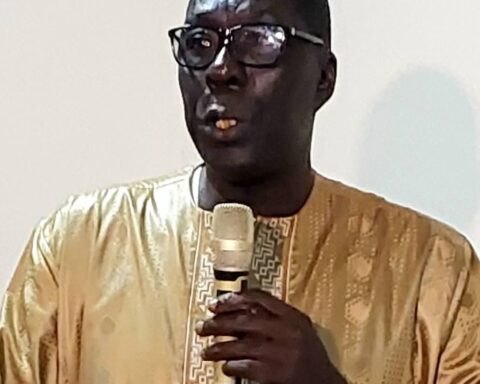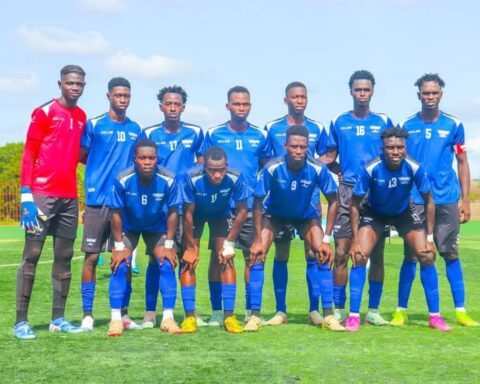Political and traditional leaders in Nigeria’s South-West geopolitical zone have called for the creation of five additional states, formal recognition of more local government areas, and constitutional roles for traditional rulers.
These proposals formed the crux of deliberations at the South-West zonal public hearing on the amendment of the 1999 Constitution, held on Friday in Lagos.
Senate Leader Opeyemi Bamidele, representing Deputy Senate President Jibrin Barau, who chairs the Senate Committee on the Review of the 1999 Constitution, outlined the proposals, which include the creation of Ijebu State from Ogun, Coastal State from Ondo, Igbomina State from parts of Osun, Ekiti, and Kwara, as well as Ibadan State and New Oyo State, both carved from Oyo.
Other key submissions include the formal inclusion of the 37 Local Council Development Areas (LCDAs) established by Lagos State in 2003 into the constitution, boundary adjustments between Lagos and Ogun states, and the renaming of Irewole Local Government Area in Osun as Ikire Local Government.
A prominent theme at the hearing was the demand for constitutional roles for traditional rulers. Bills to this effect have previously failed to pass, with Bamidele citing a lack of sufficient approval from two-thirds of state assemblies, a constitutional requirement for amendments to succeed.
“The last attempt during the ninth Senate nearly succeeded, but we could not get the needed endorsement from 24 out of the 36 state assemblies,” Bamidele explained. “Our royal fathers must intensify advocacy, particularly among Speakers and governors, to make progress.”
Representing the region’s monarchs, the Ooni of Ife, Oba Adeyeye Ogunwusi, clarified that traditional rulers were not seeking to usurp the roles of elected officials. Rather, they aimed to complement state efforts in security, conflict resolution, and grassroots development.
“We are already doing a lot in maintaining peace, security, and promoting socio-economic development. Giving us constitutional backing will further enhance our contribution to nation-building,” the Ooni said.
Other notable monarchs present included the Alaafin of Oyo, Oba Abimbola Owoade; Olowo of Owo, Oba Ajibade Ogunoye; Ayangburen of Ikorodu, Oba Kabiru Shotobi; and the Dagburewe of Idowa, Oba Sikiru Okuribido, who represented the Awujale of Ijebuland, Oba Sikiru Adetona.
The non-recognition of Lagos’s LCDAs was also a significant point of concern. Lagos State Governor Babajide Sanwo-Olu, represented by Deputy Governor Obafemi Hamzat, criticized what he termed an “administrative injustice,” given the state’s vast population.
“For example, Alimosho LGA, with a population nearly equal to that of Bayelsa State, had to be split into six LCDAs to meet administrative needs,” Hamzat said. “It is only fair that they are listed in the constitution and given full status like other local governments.”
Similarly, the Speaker of the Ekiti State House of Assembly, Adeoye Aribasoye, affirmed the support of South-West lawmakers for reforms that promote local government autonomy, legislative independence, and constitutional roles for traditional institutions.
Former Ogun State governor and serving senator for Ogun East, Gbenga Daniel, made an impassioned case for the creation of Ijebu State. He described the move as a long-overdue correction of historical injustice.
READ ALSO: Amaechi’s anger is because he saw me using a Rolls Royce —Wike
“Ijebu land has the capacity to sustain its own state. The Remo people have also expressed support for the state creation, provided their identity is included in the new name, ‘Ijebu Remo State,’ similar to Akwa Ibom,” he said, noting that Ijebu remains the only former colonial province yet to be granted statehood.
What These Proposals Mean for Nigeria’s Constitutional Amendment and Economy
The renewed push for constitutional amendments, particularly around state creation, local government recognition, and traditional institutions, reflects both longstanding regional demands and broader debates over federalism, equity, and governance efficiency in Nigeria.
Although proposals for new states and traditional rulers’ roles have been raised repeatedly over the years, their success depends on the highly technical and political process of constitutional amendment, which requires support from at least 24 of the 36 state Houses of Assembly.
This has been a historic hurdle. As Senate Leader Bamidele pointed out, the failure of previous bills to pass was not due to a lack of will, but procedural bottlenecks. For any of these proposals to succeed now, strong inter-state lobbying and political consensus will be essential.
Moreover, with demands for state creation coming from multiple regions, north-central and south-east leaders have made similar appeals, there is likely to be increased competition and negotiation over which states ultimately receive federal approval.
From an economic perspective, the proposals present a double-edged sword.
On one hand, advocates argue that new states and recognised LCDAs could bring government closer to the people, promote equitable development, and improve administrative efficiency in densely populated areas like Lagos and Ogun. For instance, the constitutional recognition of Lagos’s 37 LCDAs would unlock federal funding streams, potentially boosting infrastructure and social services in those communities.
Similarly, creating states like Ijebu or Ibadan could help address grievances over marginalisation, especially if local economic potential, such as agriculture, trade, or tourism, is strategically harnessed by new subnational governments.
On the other hand, the expansion of Nigeria’s administrative structure comes with significant fiscal implications. More states and LGAs mean more governors, commissioners, legislators, and civil service bureaucracy, adding pressure to an already strained national budget.
Critics argue that without a corresponding increase in internally generated revenue (IGR), this expansion could deepen the country’s dependency on federal allocations, further exacerbating fiscal inefficiencies.
Institutionalising the role of monarchs may also raise questions about cost and constitutional clarity, but proponents believe traditional rulers can help strengthen local governance structures, especially in areas of security and conflict resolution where the state remains overstretched.
In an era of rising insecurity and economic hardship, traditional leaders, who often wield significant influence at the grassroots, may be critical in stabilising communities and fostering local enterprise.
As the constitutional review process advances, the proposals from the South-West zone reflect a broader national dialogue about representation, equity, and governance. While the political feasibility of these amendments remains uncertain, the conversation signals a desire among Nigerians to redefine the structural foundations of the federation, and perhaps, recalibrate its economic trajectory.
The post South-West leaders’ demand for new states: Economic implications appeared first on Latest Nigeria News | Top Stories from Ripples Nigeria.







